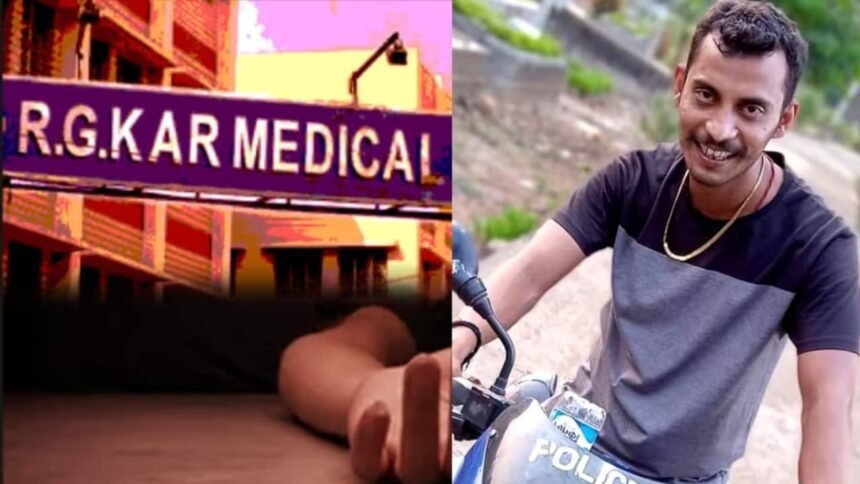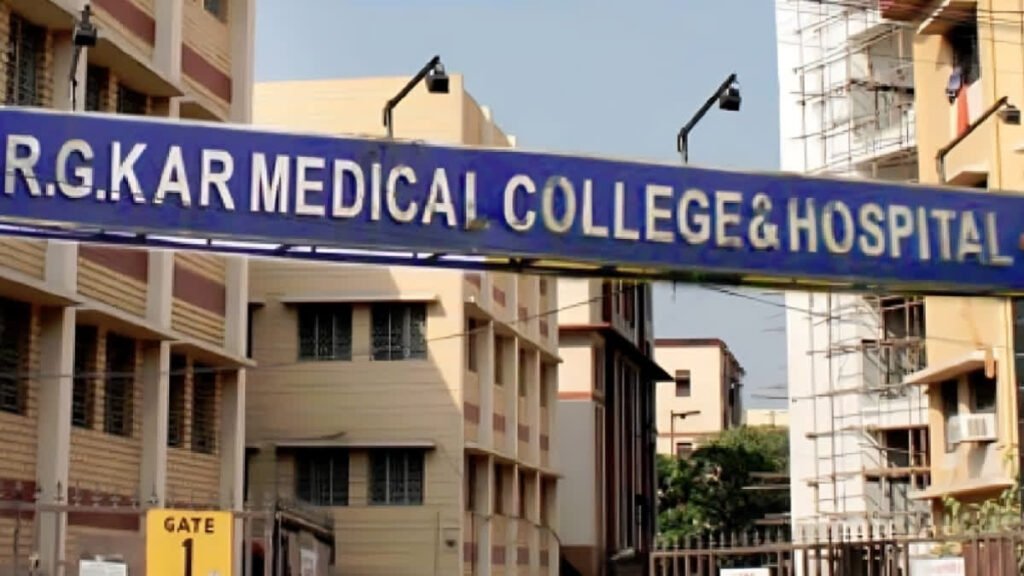A shocking case that gripped the nation has finally reached a conclusion, as the RG Kar case hearing resulted in life imprisonment for Sanjay Roy. The Kolkata court, presided over by Justice Anirban Das, delivered its verdict on this harrowing incident, which involved the rape and murder of a 34-year-old postgraduate doctor from RG Kar Medical College and Hospital. Let’s delve into the details of the case, the judgment, and its implications.
A Tragic Incident That Shook the Nation
The victim, a dedicated postgraduate trainee, was working the night shift when tragedy struck. The following morning, her lifeless body was discovered in the seminar room of the hospital. The brutal nature of the crime sparked outrage across the country, leading to widespread protests and calls for enhanced safety measures for healthcare workers.
Doctors, nurses, and citizens alike raised their voices, demanding justice and highlighting the vulnerabilities faced by medical professionals, especially women, in their workplaces. This case became a lightning rod for debates on workplace safety, particularly in institutions meant to save lives.
The Verdict: Life Imprisonment for Sanjay Roy
After months of RG Kar case hearings, Justice Anirban Das sentenced Sanjay Roy to life imprisonment, stating that the case did not fall under the “rarest of rare” category, which would warrant the death penalty. While many hope for a harsher sentence, the court’s decision was ground in establish legal principles.
The judge directed the West Bengal government to compensate the victim’s parents with a sum of Rs 17 lakh. However, the parents, visibly emotional in the courtroom, expressed that they were not seeking compensation but justice for their daughter. Justice Das assured them that the monetary award was mandat law and could be used as they saw fit.
The Convict’s Defense
During the sentencing, Sanjay Roy maintained his innocence, claiming, “I haven’t done this. I’ve been fram.” He add that several pieces of evidence were destroy and referred to his rudraksha mala as proof of his innocence, suggesting it would have broken if he were guilty. However, the judge countered his claims, emphasizing that the verdict was based on solid evidence presented during the trial.
CBI’s Role in the Investigation
The Central Bureau of Investigation (CBI) took over the case from Kolkata Police following public outcry and demands for a thorough investigation. The CBI’s counsel pushed for the death penalty, arguing that this was one of the “rarest of rare cases.”
However, the defense cited Supreme Court guidelines on awarding the death penalty, urging the court to reconsider. Justice Das carefully reviewed these guidelines before delivering his judgment, ultimately deciding against the death penalty.
Protests and Public Reaction
The sentencing sparked significant public unrest. The court premises in Sealdah were heavily guarde as protesters gathered despite being denied permission. Many question whether Roy act alone, with some alleging that other perpetrators had yet to brought to justice.
The victim’s parents voice similar concerns, accusing the CBI of failing to apprehend additional culprits. “Only one person is not involve in the crime,” the victim’s mother stated. “Such criminals have no right to live if we want to prevent future crimes in society.”
Nationwide Impact and Demand for Change
This case reignite discussions about safety in healthcare institutions. Following the incident, doctors across the country suspended work to demand better security measures. The tragedy serve as a grim reminder of the dangers faced by healthcare professionals, particularly women, who often work in isolated areas during odd hours.
Why “Rarest of Rare” Standard Was Not Applie
Justice Das’s decision not to award the death penalty has drawn both support and criticism. According to legal experts, the “rarest of rare” standard applies to cases where the crime is so heinous and the circumstances so extraordinary that no other punishment seems adequate. The judge’s decision reflected a balance between judicial principles and the evidence at hand.
A Case That Highlights Systemic Issues
The RG Kar case hearing also exposed systemic flaws in criminal investigations and workplace safety. Critics argue that the case underscores the need for more robust investigations, as many believe not all perpetrators were held accountable. Furthermore, it highlights the urgent need for comprehensive safety measures in hospitals to prevent similar tragedies.
Looking Ahead: A Call for Justice and Reform
While Sanjay Roy’s life imprisonment may bring some closure, the victim’s parents and many others believe justice remains incomplete. They have called for continued investigations to ensure that no guilty party escapes accountability.
At the same time, the nationwide protests have already prompted discussions about implementing stricter security protocols in hospitals. These measures aim to create safer environments for all healthcare workers, ensuring they can focus on saving lives without fearing for their own safety.
Read More: Trump Inauguration: Full Schedule, Key Details, and More
Conclusion
The RG Kar case hearing is a painful reminder of the vulnerabilities women face, even in spaces where they dedicate themselves to helping others. While the legal system has delivered its judgment, the emotional scars left on the victim’s family, and the lessons for society, remain profound. This case must serve as a catalyst for change, prompting better safety measures, more effective investigations, and a stronger commitment to justice.
In memory of the victim, let us hope her tragic story leads to a safer and more just society.










